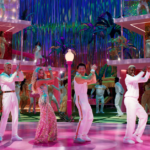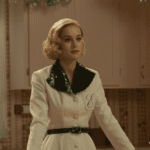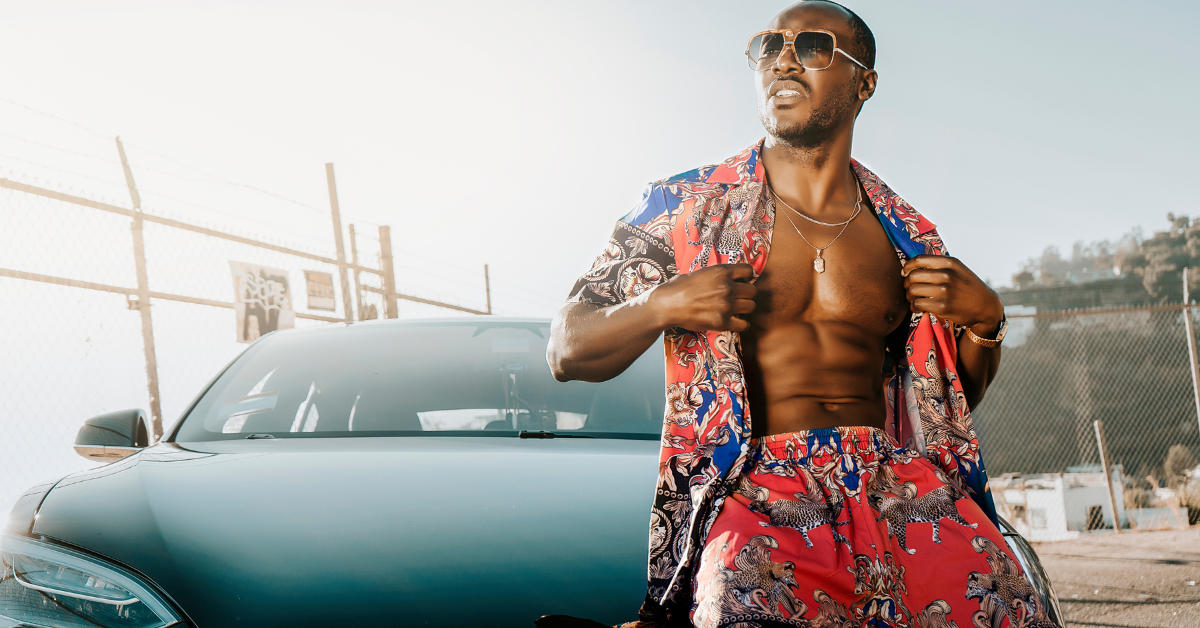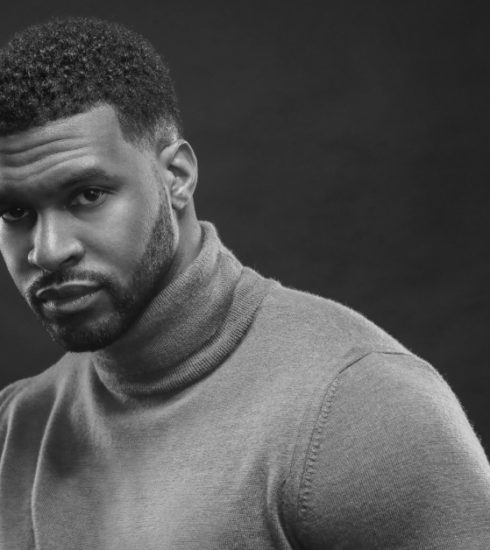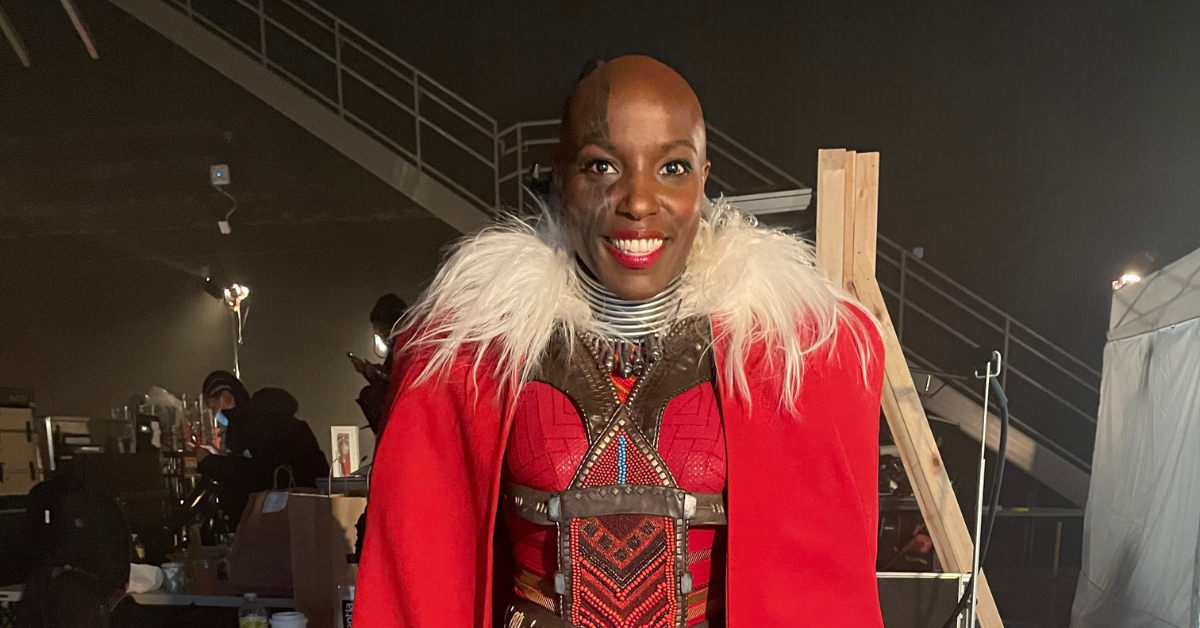Anissa Felix, a rising star, is a triple threat performer.
Anissa Felix, a Trinidadian-American of the first generation, is a triple threat performer with a passion for storytelling. Her upbringing and ongoing respect for her culture and heritage are the sources of this affection. From our television screens to the stage, she is a rising star you should undoubtedly keep an eye on. Anissa gives back to the next generation of entertainers, so it’s not just about her. In the same way that we pass down stories to the next generation so they don’t lose their origins, she ensures that the next generation is equipped to navigate this hectic and competitive world of entertainment.
Cox: Before we begin talking about your new show on Netflix, I want to know where it all began for the first-generation Trinidadian actress.
Felix: Both of my parents are originally from Trinidad and Tobago. They came to the United States in the 1960s and lived in New York City until the 80s. That’s when they moved to Virginia and then had me. Growing up in Virginia at that time , there weren’t really many Caribbean people there, which went for much of the south.
But I loved growing up in the South because it’s really a beautiful place. My family and I kept our Trinidadian culture alive through music, food, and celebrations, which we still do to this day. My mom made sure we kept Carnival alive in our home 24/7.
It’s funny because even when I go back to Trinidad, my aunts and uncles are always surprised that I know our customs and understand the “ole talk”.
Cox: Being a proud Trinidadian, what does that mean for Anissa?
Felix: I have this incredible pride in being Trini. I just love the makeup of the history of Trinidad when you really look at it and learn about it. It’s so diverse. You get people of every color and hue, different languages, and different religions. We have three major religions: Christianity, Hinduism, and Islam. It’s just amazing because everybody lives together and shares with each other their customs and cultures.
Being there, you might meet someone who is Trini Indian but is also in the African dance troupe. My family, for example, is of African descent but makes some of the best Trini Indian curry. We are so used to working together and melding cultures.
It’s a special place to come from because we’re all a little bit of everything.

Cox: I love how you speak about how in Trinidad, differences in cultures, religious beliefs, and everything else are embraced and shared. Do you think a place like the US can learn from Trinidad?
Felix: Yes, because I think America is just so hyper-focused on our differences. It’s built into the foundation of the institutions. Don’t get me wrong, Trinidad has its own issues, but when it comes to the differences in its people, they’re intermingled. It’s because, when you look at history and origin of Trinidad, these different ethnic and religious groups had to spend time together from the start.
I think also, when you look at the size of Trinidad, it’s a small island, so we have to get along. Unlike the US, which is massive, it’s a lot easier to become segregated in many ways. America has a lot to learn, and we are a long way from getting to where we need to be.
Cox: Staying on the topic of culture How has your Trinidadian culture impacted and influenced you as an entertainer? You are an actress, singer, and dancer.
Felix: I’ve been performing since I was a child. I played in the kiddie carnival during the West Indian Day Parade in Brooklyn. I would wear the traditional “big costume”, that had feathers and sequins and weighed 30 pounds , when I was six years old. This was the start of what gave me that sense of performing and storytelling. I even once took 2nd place in the costume competition as a kid. My outfit was iconic (and stood in display at the Trinidadian Embassy in Washington, DC for over 10 years).
You know there is a storytelling element when you are wearing costumes and masks for Carnival. You see the Moko Jumbie walking on stilts and Mud Masqueraders covering their bodies with mud and powder. These are old Trinidadian traditions that date back to Colonial times. When you’d play Blue Devil, for example it was said to frighten the evil spirits. Much of this history came from a mixing of Christianity and the West African religions, which is luckily passed down to the kids today.
As you can see, storytelling has always been intrinsic to me.
Cox: Now I want to get into your love for singing. You have been on Broadway as well as in film. And Broadway really ties all the things you love together.
Felix: I’m so glad I found musical theater because it really combined my love for acting, dancing, and singing. As I mentioned, I started out in dance when I was about 3 years old. But then I got to participate in school musicals. And I just continued down this performing arts track of dance competitions, voice lessons, and community theater. I had a very busy schedule.
But I’m truly lucky that my family were really supportive and involved. They were so involved, that when I ended up doing community theater in my hometown, my mom would work on the costumes, my dad would help on the set, and my sister would do makeup backstage. It was really a family affair.

Cox: I want to know what really drives Anissa as a performer. What keeps you going and never giving up?
Felix: It’s the only thing I’ve ever wanted to do. I’ve been training for this since I was eight years old. I remember going to my first Broadway show and not knowing that these were these people’s jobs. I was like, “I have to do this”. And every decision in my life since then has been about wanting to be in New York doing theater and acting in television and film. And at this point, it’s too big to fail. There is no plan B for me. There is only this, and I can’t see myself doing anything else.
Cox: Being that you have been part of so many aspects and businesses in this industry, you strive to advocate for others, especially in diversity.
Felix: I have always really enjoyed mentoring young performers. Especially because I had so many incredible mentors growing up. When I’m at events and speaking engagements, I give out my email, and I tell the kids to shoot me an email if they have questions or need guidance. A lot of the time, the kids we speak to don’t have access to programs, training, or networking opportunities, so it’s my honor to be able to offer them any type of wisdom on their journey.
Cox: Now I want to get into your latest project on Netflix, Survival of the Thickest. What was it about this series that caught your attention? You knew you needed to be part of it when the opportunity presented itself.
Felix. As an actor, I do about 100 auditions a year. I’m reading tons of scripts. The fact that Michelle Buteau, a hilarious comedian and writer, is the author of this series, caught my attention. She wrote this in her own voice. I read it with Michelle’s voice in my head. I was like, “Oh, this is hilarious”. It was funny while reading the script on paper, so I can’t imagine how wonderful it’s going to be to actually watch it. I don’t want to give any spoilers, but there are sweet moments, ridiculous moments, and even a little heartbreak.
Cox: How was your experience landing the role of India in the show?
Felix: It was just really easy for me. When I went in for the audition, I just let the writing do the talking through me. It was the chillest experience. I was on Zoom with thirty other people from the production team and we were laughing and making jokes. I studied and prepped my script, of course, but it was just flowing because the script is just so well written.
Cox: Tell me about your character, India.
Felix: Well, she is definitely more of a free spirit than me. I mean, that’s how she likes to portray herself on the outside. But inside, she has some turmoil that she’s dealing with. I’m scared to tell you any spoilers, but let’s just say, she may not have the courage to make the decision that is best for her own heart. She’s genuine though and I’d absolutely be her friend in real life.

Cox: Why do you think viewers are going to fall in love with this show?
Felix: Everybody who watches this show is going to see somebody they know. I know these people, or I have met them before.
Credits
Photographer: Austin Morales
MUA: Fjorela Pllumbaj


